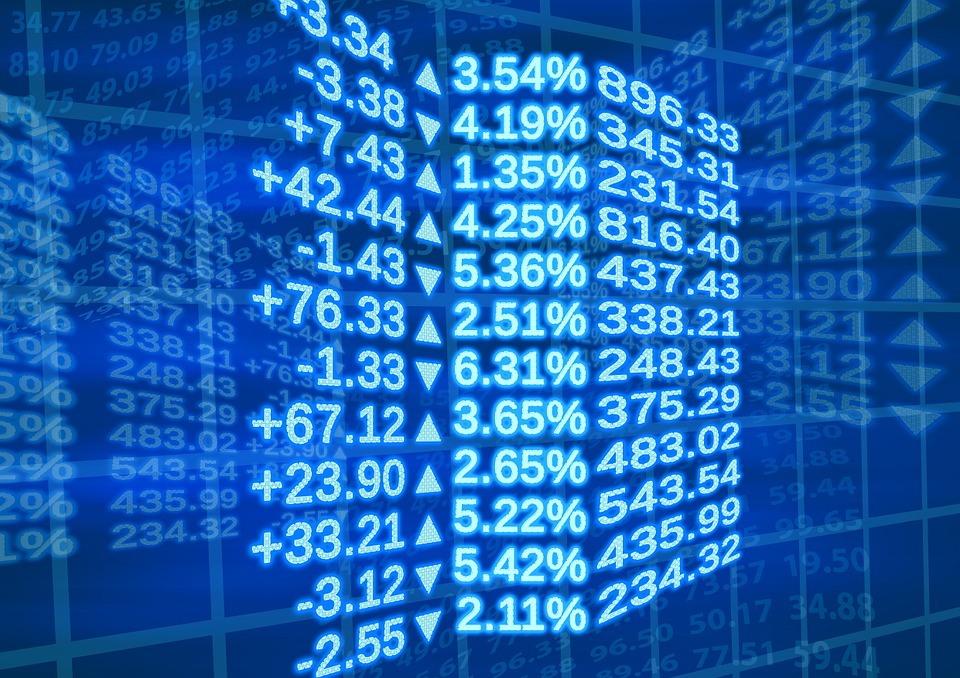MSCI All-Country World Index up 0.3 per cent, Japan's Nikkei slips 1 per cent
A hint from the Bank of England of slightly faster future rate rises also helped the pound further.

Global stocks began the new month buoyantly on Thursday after a brutal October while the pound rallied on reports that Britain and the European Union were close to a post-Brexit deal on financial services.
A hint from the Bank of England of slightly faster future rate rises also helped the pound further.
The MSCI All-Country World Index, which tracks stocks in 47 countries, was up 0.3 per cent on the day.
October was the index's worst month since May 2012 - a loss of 7.5 per cent - as shares globally took a battering on a number of factors ranging from trade wars to concerns about the global economy and higher U.S. interest rates.
European markets followed a strong start in Asia, with robust company earnings helping the pan-European STOXX 600 index touch a two-week high.
Britain's FTSE 100 was flat, however, as the pound strengthened on a report Britain and the EU were advancing towards a deal that would give financial services firms in the UK continued access to European markets once Brexit happens.
The pound extended its rally on Thursday after the Bank of England kept interest rates on hold and hinted at slightly faster future rate rises if Brexit goes smoothly.
S&P 500 futures were up about 0.3 per cent. Eyes were on iPhone-maker Apple, reporting its third-quarter results later in the day.
The MSCI index of developing-world stocks rose 0.8 per cent and was on track for a one-week high, as Chinese stocks, rose on the latest in a round of official measures to support the domestic markets.
"It is worth noting that such a sharp month of (equity) outflows - a rare occurrence - tends to be a buying opportunity," the Institute of International Finance (IIF) said in a note, referring to emerging markets in the October exodus.
"In the 4 months, we have on record since the 2008-09 crisis that has seen least $10 billion in equity outflows. The subsequent 12 months saw an average of $65 billion in inflows."
Onshore, China's yuan strengthened past 6.95 per dollar. A Reuters poll of analysts showed Chinese authorities will defend the yuan from weakening past 7 per dollar, although some expected the currency to breach that level.
MSCI's broadest index of Asia-Pacific shares outside Japan rose 0.7 per cent, adding to modest gains the previous day. The index had fallen 10.2 per cent in October, its worst monthly performance since August 2015.
The improved mood had filtered down to Asia from Wall Street, which rose for a second day on Wednesday as strong company results and bargain hunting of beaten-down technology and internet favourites lifted spirits.
Hong Kong's Hang Seng rose 1.5 per cent on Thursday and the Shanghai Composite Index climbed 0.2 per cent.
Japan's Nikkei bucked the trend and slipped 1 per cent following two days of big gains.
RISK SENTIMENT RECOVERS
In currencies, sterling's rally nudged the dollar off its recent peak. The index measuring the greenback's strength against a basket of six major currencies was down 0.7 per cent at 96.437.
The index had spiked to a 16-month high of 97.20 overnight on an ADP national employment report showing U.S. private-sector payrolls increased by the most in eight months in October.
The dollar has enjoyed a boost from robust data, including last week's GDP numbers which showed the U.S. economy slowed less than expected in the third quarter.
The Australian dollar and the Kiwi dollar were up 1.4 per cent and 1.7 per cent respectively after strong domestic trade data helped offset some of the concerns about slowing growth in China - Australia's biggest trading partner.
"We've got a reasonably risk-friendly market, and with the new month we have some dollar selling," said Kit Juckes, a strategist at Societe Generale.
In another sign of improving risk sentiment, Scandinavian currencies - the Norwegian crown and Swedish crown - rallied as well.
The euro rose over 0.75 per cent to $1.1376 after retreating to $1.1302 on Wednesday, its lowest since mid-August.
The single currency has been weighed by less-than-stellar economic news from the eurozone.
In commodities, U.S. crude futures were down 0.35 per cent at $65.08 per barrel, while Brent crude lost 0.5 per cent to $74.62 per barrel.
The two benchmarks remained on the back foot after falling more than $10 from a four-year peak reached early in October as broader market ructions were seen hurting demand for fuel.
(With inputs from agencies.)
- READ MORE ON:
- Market
- Market sentiment
- Sentiment analysis
- History of China
- Government of China
- Gross domestic product
- Real gross domestic product
- Panama
- Flag of Panama
- Panama Canal
- S&P 500 Index
- Scandinavia
- Norwegian krone
- Apple
- Business
- Share price
- International finance
- United Kingdom
- A United Kingdom
- Australian dollar










